Druggenius.com is reader-supported. We may earn a commission through products purchased using links on this page. Learn more about our editorial process here.
Inflammation can be painful and affect one’s quality of life, but thankfully, there are strong, natural anti-inflammatory substances that can help manage inflammation and live more comfortably.
This article will guide you through the most potent natural anti-inflammatory substances you can include as a part of your diet.
- Strongest Natural Anti-Inflammatory Substances
- Understanding Inflammation
- The Role of Diet and Natural Substances in Inflammation
- Natural Anti-Inflammatories
- Supplements That Combine These Substances
- FAQs
- What is the strongest natural anti-inflammatory?
- How can I incorporate these natural anti-inflammatory substances into my diet?
- Can these natural anti-inflammatory substances replace my medication?
- Are there any side effects of these natural anti-inflammatory substances?
- How long does it take for these natural anti-inflammatory substances to work?
- Can I take these natural anti-inflammatory substances while pregnant or breastfeeding?
- Can children take these natural anti-inflammatory substances?
- Recap
- Conclusion
Strongest Natural Anti-Inflammatory Substances
- Turmeric (Curcumin)
- Omega 3 Fatty Acids
- Ginger
- Green Tea
- Garlic
- Cinnamon
- Black Pepper
- Bromelain
- Methylsulfonylmethane (MSM)
- Boswellia
- Capsaicin
Understanding Inflammation
Bodily inflammation is an essential part of the body’s healing process. It occurs when the immune system sends inflammatory cells and cytokines to protect the body from foreign elements like bacteria, infections, injuries, allergens, or organisms that cause infections, and this response results in symptoms like pain, swelling, redness, heat, and loss of function.
There are two types of inflammation:
Acute inflammation
Acute inflammation is the body’s response to sudden body damage. It can result from either exposure to a substance (e.g., insect bites/stings or dust), injuries, or infections.
Here are tell-tale signs of acute inflammation:
- Redness
- High body temperature
- Swelling
- Pain
- Loss of function
Factors and infections that can lead to acute inflammation include conditions like:
- Bronchitis
- Appendicitis
- Illnesses ending in “-itis,”
- An ingrown toenail
- Sore throat from a cold or flu.
Symptoms of acute inflammation can appear within hours or days, depending on the cause. In some cases, they can rapidly become severe. How long they manifest or last depends on what triggered it, the affected body part, and individual factors.
Chronic inflammation
This type of inflammation happens when the immune system releases inflammatory cells, even without injuries and infections, which increases the risk of chronic, autoimmune diseases, such as Alzheimer’s, type 2 diabetes, heart disease, or rheumatoid arthritis.
Signs of chronic inflammation include:
- Abdominal pain
- Chest pain
- Fatigue
- Fever
- Joint pain or stiffness
- Mouth sores
- Stomach problems
- Skin rash
- Depression
Some lifestyle factors may also lead to chronic inflammation. One may be more likely to develop chronic inflammation if they:
- Drink too much alcohol
- Smoke frequently
- Have a high body mass index (BMI)
- Do infrequent or excessive physical exercise.
- Experience chronic stress.
The Role of Diet and Natural Substances in Inflammation
Certain foods may increase the risk of inflammation. Foods high in food colorings, additives, unhealthy fats, sugar, artificial sugars, and preservatives stand out in particular, especially when consumed in excess. These include:
- Red meat (Pork and beef)
- Processed meats (e.g., bacon, hot dogs, luncheon meats, canned meats, and cured meats)
- Refined grains (e.g., white bread, white rice, pasta, and breakfast cereals)
- Snack foods (e.g., chips, cookies, crackers, and other pastries)
- All fried foods
- High-carb foods
- Unhealthy oils (e.g., palm, cottonseed, and partially hydrogenated oils)
- Alcoholic beverages
- Sodas and other sweetened/carbonated drinks
Subscribing To An Anti-Inflammatory Diet
Anyone can benefit from an anti-inflammatory diet. Anti-inflammatory foods and substances are rich in essential nutrients and provide a good balance of carbohydrates, fats, and proteins to help reduce inflammation symptoms such as fatigue and swelling. One study shows that such a diet could help promote a healthy aging process and help alleviate the inflammatory processes.
In principle, the diet encourages consumers to opt for fresh foods instead of heavily-processed, artificially-flavored foods
Natural Anti-Inflammatories
Turmeric (Curcumin)
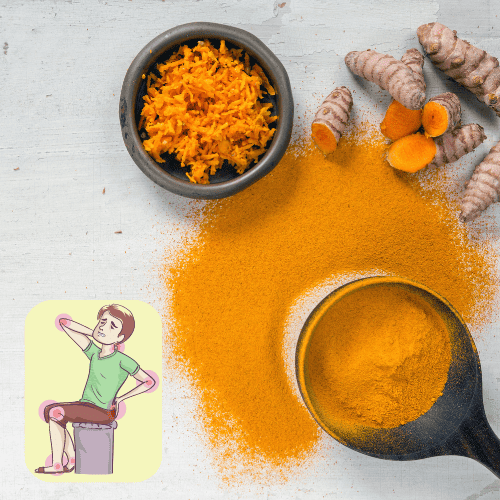
Turmeric is a brilliant yellow spice from India that’s a staple in many kitchens in restaurants and homes. Aside from its culinary use, it has been used as a herbal remedy for many ailments in Ayurvedic and Chinese medicine.
Turmeric does have many scientifically-proven health benefits, particularly its richness in antioxidant and anti-inflammatory properties thanks to curcumin, the substance that also gives it its rich yellow hue and flavor. Turmeric can also reduce cancer risk, lower cholesterol levels, prevent cognitive decline, improve the skin, and relieve symptoms of depression.
You can add use turmeric to season a wide variety of meat/vegetable dishes, whole grains, soups, stews, sauces, marinades, and pickling brines.Â
â Best Time of Day to Take Turmeric for Inflammation
Omega-3 Fatty Acids
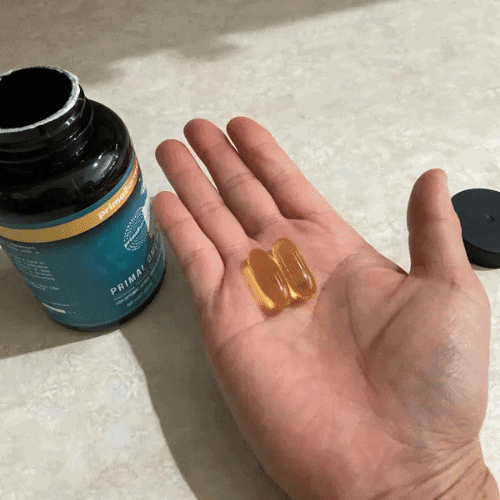
Omega-3 fatty acids (also called omega-3 fats and n-3 fats) are considered essential fats, which means the body can’t make them on its own but must get them from food sources. They contain docosahexaenoic acid (DHA) and eicosapentaenoic acid (EPA) â both essential nutrients in preventing and managing heart disease.
Studies show that the natural anti-inflammatory properties of omega-3 found in fish oils can relieve menstrual pain. Another study found that a healthy balanced diet composed mainly of omega-3-rich foods can greatly improve heart health and reduce the risk of coronary heart disease-related death and stroke.
Fatty fish (e.g., salmon, mackerel, sardines, and anchovies) and nuts (walnuts, macadamia, pecans, almonds, and hazelnut) are rich in omega-3 fatty acids that contain anti-inflammatory properties. Seeds like pumpkin, chia, and flaxseed are also packed with antioxidant and anti-inflammatory properties, which protect the cells from damage from free radicals, and are a great source of dietary fiber, which can enhance the anti-inflammatory effect.
Ginger
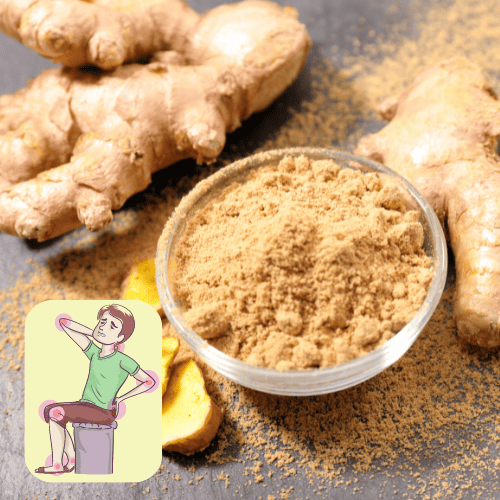
Ginger has been used for thousands of years for its culinary and medicinal purposes. It’s known to prevent nausea, manage weight loss, lower cholesterol levels, protect nerve function, and reduce cancer risk.
Studies have proven that ginger’s 400+ compounds have powerful anti-inflammatory properties, that are especially helpful for combating symptoms of conditions like rheumatoid arthritis and osteoarthritis and even help increase joint mobility. They do so by inhibiting inflammatory responses in the body.
Ginger is usually added to add flavor to various dishes, but you can also take it as tea (blended with lemon and honey to balance its spiciness). Others chew on a piece of ginger root two to three times a day to experience relief and enjoy its other health benefits.
Green Tea
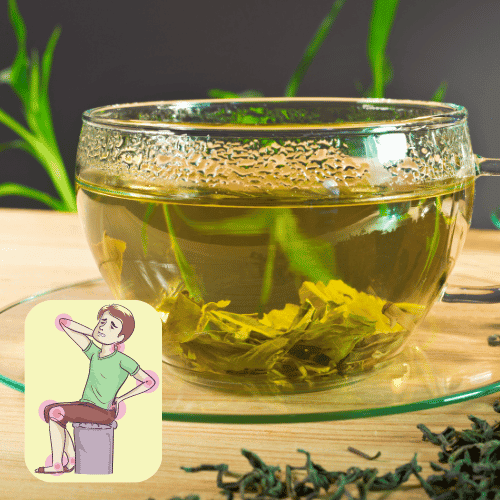
Green tea is a type of tea that is made from Camellia sinensis leaves. Compared to oxidized teas (e.g., black tea), it’s one of the least processed or oxidized types being made from dried and steamed unoxidized tea leaves, which allows it to preserve more of its polyphenol content.
Drinking tea, especially green tea, is a great way to fight bodily inflammation. Studies show that drinking green tea has a higher anti-inflammatory effect due to its higher flavonoid (catechin) content.
Drinking green tea is a recommendable health habit. One can take about three to five cups a day to better experience its benefits.
Garlic
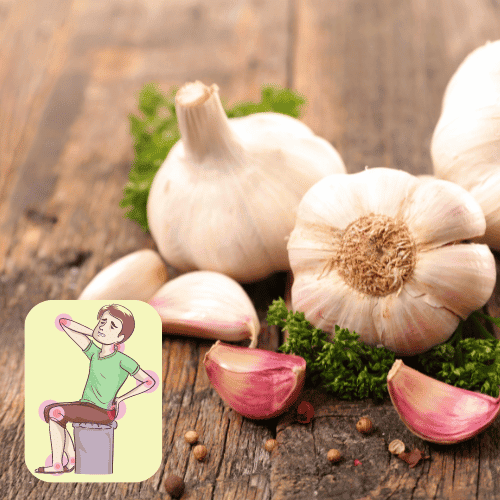
Garlic is more known for its culinary usage, giving rich flavor to every dish it’s used on. But little is said of its potent antiseptic, antibacterial, and antifungal medicinal properties. Garlic contains allicin, a strong antibiotic released when cloves are crushed or chewed.
Garlic likewise has powerful anti-inflammatory benefits. It also contains diallyl disulfide, which studies show is a strong anti-inflammatory organosulfur compound that inhibits the effects of pro-inflammatory cytokines.
Aside from using it as an ingredient in dishes, garlic can also be chewed and consumed raw, which can draw more allicin than when cooked.
Cinnamon
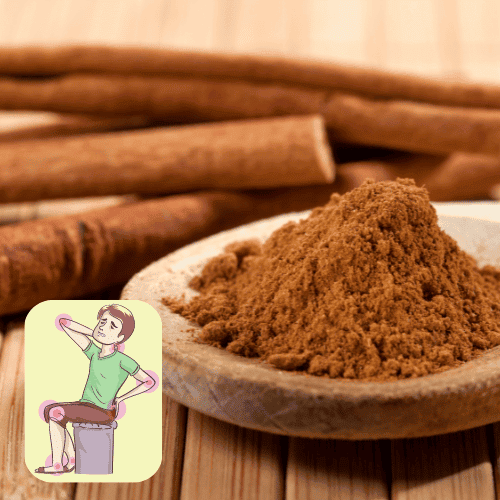
Since time immemorial, cinnamon has always been used as a cooking ingredient, primarily due to its rich brown color, delicately fragrant aroma, and warm sweet flavor. But its medicinal and curative properties make this spice even more noteworthy.
Cinnamon is rich in vitamins B and K and contains antioxidants such as choline, beta-carotene, alpha-carotene, beta-cryptoxanthin, lycopene, lutein, and zeaxanthin, which can all prevent oxidative stress.
Cinnamon’s compounds have been found to have strong antioxidant, anti-inflammatory, antidiabetic, and antimicrobial properties. It also promotes gut health thanks to its prebiotic properties, reduces blood pressure, and lowers the risk for type-2 diabetes and cognitive decline.
One can enjoy cinnamon by sprinkling a little of it on food or beverages. It can also be served as a tea.
Black Pepper
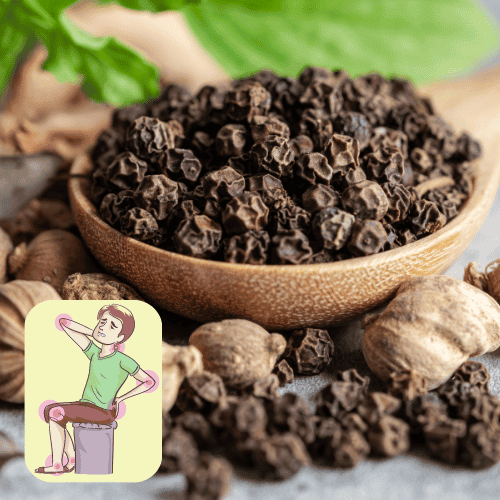
Like garlic and turmeric, black peppers are a worldwide kitchen staple used for improving taste and adding flavor to dishes. Otherwise considered one of the principal spices, black peppers also offer a variety of health benefits.
Black pepper has been proven by various studies to exhibit antibacterial, antioxidant, and anti-inflammatory properties. Its chemical compounds, particularly piperine, have shown promise in combating the early acute inflammatory process. The same antioxidant also protects against free radical damage in the cells.
Bromelain
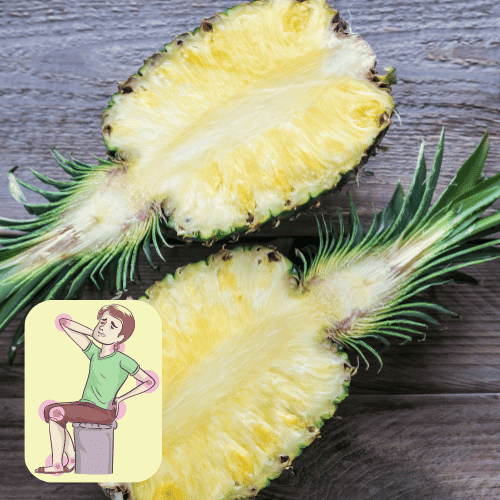
Bromelain is an enzyme extract derived from the stem and fruit of pineapples. It helps the body digest protein and has various benefits in relieving inflammation, pain and improving one’s respiratory health.
Studies attest to its efficacy as a safer alternative or adjunctive treatment for osteoarthritis thanks to its anti-inflammatory properties. However, contrary to popular belief, bromelain does not help break down fat, nor do its enzymes proven to aid in losing weight. It only breaks down the protein that the body receives from foods.
The timeline for bromelain to start working for inflammation is within a few days to weeks. It’s impact compounds through regular use though so be sure to stick to your routine.
Foods like kimchi, yogurt, kiwifruit, and sauerkraut are also rich in bromelain.
Methylsulfonylmethane (MSM)
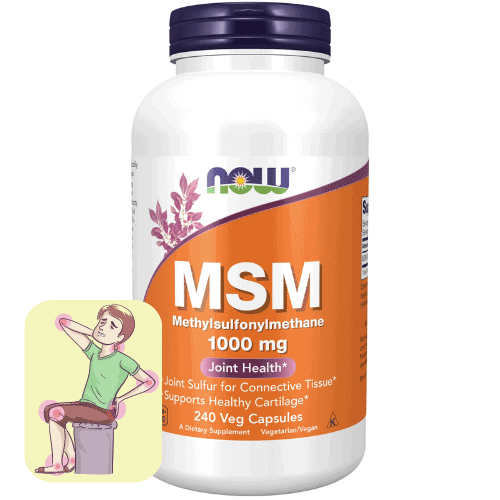
Methylsulfonylmethane (MSM) is a sulfur-containing, naturally-occurring compound found in plants, animals, and humans.
MSM has anti-inflammatory and antioxidant effects. It inhibits NF-kB, a protein complex involved in inflammatory responses in the body. Studies have also shown its efficacy in increasing joint flexibility as well as its ability to stimulate collagen production in joints which leads to stronger bones and healthier joints, making it beneficial for those with arthritis or joint pain.
This compound is highly present in foods like onions, garlic, asparagus, cabbages, broccoli, and sprouts. Beverages like milk, coffee, and tea also have MSM.
Boswellia
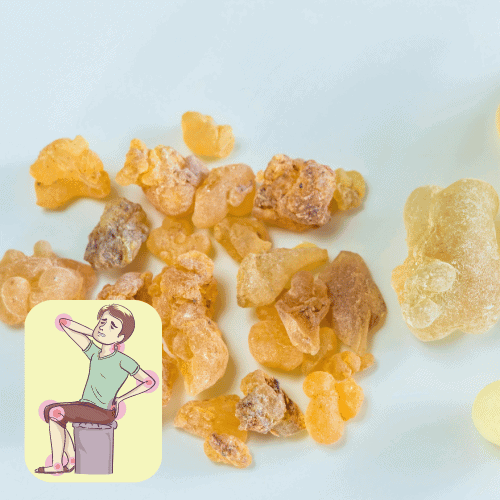
Boswellia is an herbal extract sourced from the Boswellia serrata tree whose usage dates back to Biblical times when it was commonly used as frankincense. It’s also been used medicinally, with the sap, bark, and other plant parts of the Boswellia serrata tree being consumed for therapeutic purposes for centuries.
Studies show that boswellia has strong anti-inflammatory properties and may be effective in treating inflammatory conditions like osteoarthritis, rheumatoid arthritis, and inflammatory bowel disease. it can serve as an effective painkiller and protect the cartilage from damage and degradation.
Supplements containing Boswellia serrata extracts are widely available. They’re vegan/vegetarian and are gluten-free making them suitable for various diets.
Capsaicin
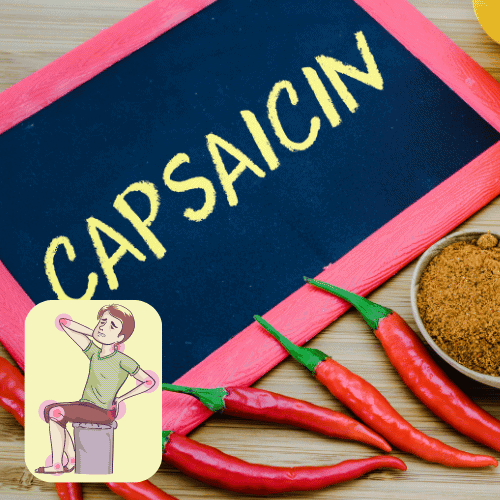
Capsaicin is the predominant active component of chili peppers and is responsible for their spicy flavor and burning and irritant feel. It’s more often used for nerve pain, digestion problems, cardiovascular problems, and many others.
Capsaicin has potent analgesic and anti-inflammatory properties, making it effective for treating arthritis and other inflammatory conditions. It’s also sometimes used for pain management by stimulating pain receptors, which can reduce sensitivity/threshold to pain.
While chili peppers are abundant in capsaicin, herbs like cinnamon, cilantro, and oregano also have small amounts of it.
Supplements That Combine These Substances
Here are some supplements that contain these natural anti-inflammatory substances:
1. Physio Flex Pro
Physio Flex Pro is a joint support supplement that aims to nourish and lubricate the joints to relieve joint pain and help restore easier movement and flexibility.
The formula includes select naturally-occurring compounds – bromelain, chondroitin, and selenium citrate that are all clinically proven to naturally restore mobility and strength and help repair key connective tissues. Other ingredients like ginger, turmeric, and methylsulfonylmethane have potent antioxidant and anti-inflammatory properties that help improve bone and joint health.
2. Joint Support – Transparent Labs
Transparent Labs’ Joint Support Supplement helps reverse the effects of inflammation on the joints and bones to restore normal flexibility and mobility.
Joint Support’s formula is made exclusively with five of the best clinically-studied, patented ingredients like Curcumin C3 Complex® (turmeric), FruiteX-B®, Boswellin® Super, UC-II® Collagen, and Bioperine® (black pepper) which promote healthy joints, protect the cartilage from damage, relieve inflammation, and protect against oxidative stress.
3. MoveWell Plus – Live Conscious
MoveWell Plus aims to decrease oxidative problems, prevent inflammation, improve joint health, and ease mobility to help you get back on your feet and groove in no time.
For this formula, Live Conscious uses a clinically-proven Zanthin® Natural Astaxanthin, which are ethically sourced omega-3s fatty acids sourced from krill oil, and hyaluronic acid, which are potent, highly absorbable ingredients that help lessen oxidative stress, maximize mobility, and restore flexibility in the joints.
FAQs
What is the strongest natural anti-inflammatory?
Omega-3 fatty acids and curcumin are considered the more potent anti-inflammatory substances.
How can I incorporate these natural anti-inflammatory substances into my diet?
Some of these substances like garlic, turmeric, omega-3s, and black peppers are already found in the food we eat daily. It’s ideal to keep a structured meal plan to spread out the benefits throughout the day.
Can these natural anti-inflammatory substances replace my medication?
In principle, eating an overall healthy diet, or one centered on a specific nutrient, is preferable and more recommendable compared to medication/supplementation. Everyone has a different individual response to supplements, and others may not always yield the same results.
Are there any side effects of these natural anti-inflammatory substances?
Overconsumption of some of these foods may cause headaches, allergies, stomach troubles, sleeping problems, and even anxiety. So it’s important to always eat in moderation, never exceeding beyond the recommended daily amount (RDA).
How long does it take for these natural anti-inflammatory substances to work?
One might expect to see some improvements and results within a week or more of consumption.
Can I take these natural anti-inflammatory substances while pregnant or breastfeeding?
There is no fixed data on the effects of some of these substances on pregnant or breastfeeding women. However, doctors generally advise moderation to prevent any possible effect on fetal development.
Can children take these natural anti-inflammatory substances?
Most of these substances like garlic, black pepper, cinnamon, omega-3s, and turmeric are often found in daily meals, so it’s safe to say that they are generally safe for kids. However, since green tea and capsaicin are better tolerated by adults, it may be better for them to steer clear of them in the meantime.
Recap
- Inflammation is a part of the body’s healing process where the immune system sends inflammatory cells and cytokines to defend the body from foreign elements, such as bacteria or organisms that cause infections.
- There are two types of inflammations â acute and chronic.
- Foods that are high in food colorings, additives, unhealthy fats, sugar, artificial sugars, and preservatives can cause inflammation.
- Natural anti-inflammatory substances help combat inflammation, relieve pain, and prevent the risk of various health conditions.
Conclusion
Inflammation can cause extremely uncomfortable symptoms like body pain, fatigue, and swelling, and can result in more conditions like arthritis, asthma, cardiovascular problems, and various cancers. Natural anti-inflammatory substances, however, are an easy, potent, and effective way to combat inflammation and its symptoms.
Consult your healthcare provider, or a trusted dietitian or nutritionist, to help you make a detailed and structured meal plan to make the most out of these substances and maximize their health benefits.
Disclaimer: this article does not constitute or replace medical advice. If you have an emergency or a serious medical question, please contact a medical professional or call 911 immediately. To see our full medical disclaimer, visit our Terms of Use page.













